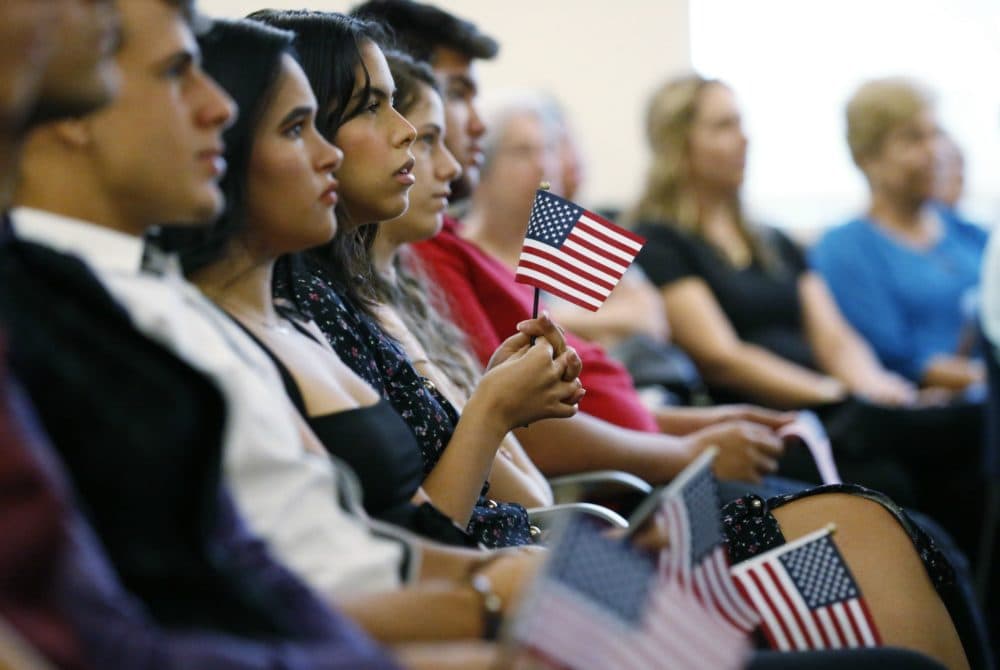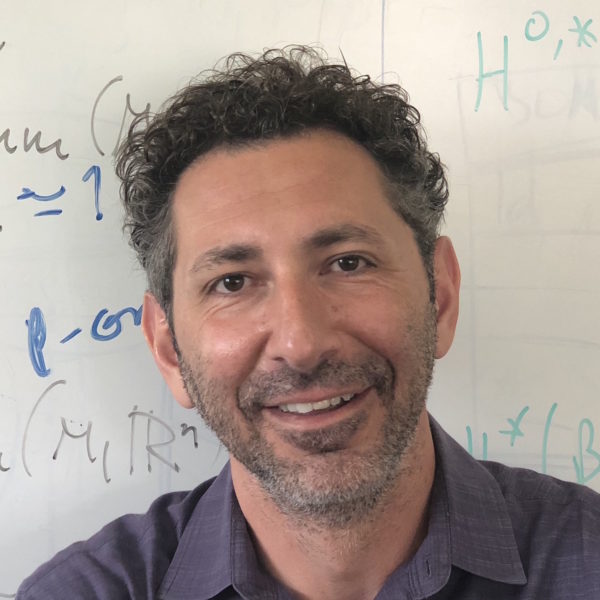Advertisement
Commentary
Immigrants Are Ambassadors For American Values — That Can Be Good For The World

When I came to Boston from (what was then) Yugoslavia in 1991 to attend my senior year of high school, the most astonishing thing wasn’t the oversized cars or dozens of TV channels. It was my ESL class, which was filled with kids from all over the world: Spain, Portugal, Brazil, Venezuela, Nigeria, Cape Verde, South Korea and Vietnam.
I sat next to a man whose family fled China after Tiananmen Square and a woman whose family fled from poverty in Haiti. They could not go back even if they wanted to. And neither could I, since a war swiftly and mercilessly engulfed my newly created country, Bosnia-Herzegovina, before the end of the school year.
That was the first time I saw how the promise of a better life brings people together. It was the first time I recognized the potential power that immigrants here had in advocating for diversity and tolerance in our home countries. This realization has been cemented over nearly three decades of living in this nation of immigrants, where I always felt welcomed and at home.
[Trump's immigration policies] suffocate the voice of multiculturalism that so many of us have acquired here and carry back to our countries.
Bosnia-Herzegovina emerged from the war to become a country run by politicians who dial up nationalism and exclusion during each election cycle. They stoke grievances of the past, and time and again pull off the trick of convincing people in their own ethnic group that there is only one true flag to stand under.
Since the war ended 23 years ago, these leaders have created a political system with the sole purpose of accumulating wealth, leaving the ordinary person with not much more than the raggedy flag woven of blame and intolerance.
This year was no different.
Earlier this month, in the elections for the three-way presidency of Bosnia-Herzegovina (under our constitution, the presidency is a three-member body — one Bosniak, one Croat and one Serb — who serve one four-year term together), people yet again voted for candidates who pandered to blind ethnic patriotism and nationalism. The election of these candidates guarantees a continuation of the status quo, economic and political stagnation, and resigned apathy prevalent among youth who are leaving the country in droves.
I am now one of many immigrants from Bosnia-Herzegovina who are invested in improving that country’s outlook for a more prosperous future.
We do this not only by monetary means, or by sharing our professional expertise, but also by promoting the notion that despite all our differences, life together is not only possible, it is richer for our diversity. We use every opportunity to speak of the tolerance and acceptance we found in the U.S., of coexistence that is peaceful and rewarding, even if it is often imperfect.
Our efforts are making a difference. In the most recent elections, two of the most educated, progressive and pluralist candidates for the presidency had lived in the U.S., one of them for more than 30 years.
The cornerstones of their platforms were inclusivity and tolerance as necessary conditions for prosperity, economic independence, a world-class education system and EU integration. Their messages were not simply soundbites; they came directly from their experience, largely garnered in the U.S.
Unfortunately, both candidates were always long shots. But still, the attention in the months leading up to the election and the number of votes they received indicates a slight, but encouraging change in political winds. It is almost possible to imagine someone like these candidates leading Bosnia-Herzegovina in the near future.
This ripple effect is one of many reasons why actions by President Trump and his administration on immigration are shortsighted and fundamentally ignorant of the world and all that ails it.
... President Trump and his administration on immigration are shortsighted and fundamentally ignorant of the world and all that ails it.
The planned border wall, travel bans, the separation of immigrant children from parents, the gestapoization of ICE, the all-time lowest cap on the number of refugees allowed in the U.S. — these are not only designed to condition generations of immigrants to subservience and fear, but are also poised to suffocate the voice of multiculturalism that so many of us have acquired here and carry back to our countries.
The task of championing American diversity is starting to devolve into a mere reassurance that it is not broken. This endeavor seems increasingly futile and disingenuous, and, in a place like Bosnia-Herzegovina, it is even further complicated by recent history, among other factors.
The populism playbook, from which Trump takes his cues, has already been successfully implemented all over Central and Eastern Europe, causing a surge in isolationism and prejudice against migrants pouring into Europe. In Bosnia-Herzegovina, decades of experience in divisiveness and corruption, invigorated by the populist upsurge, have made the politics even more nefarious and resentment toward migrants even more pronounced.
In his recent address to the U.N. General Assembly, President Trump said that “the only long-term solution to the migration crisis is to help people build more hopeful futures in their home countries.” I agree, and this would fix not just the migration crisis, but much more that is broken in the world.
U.S. policies must recognize that immigrants here play an important role in bringing about those changes in their countries of origin.
Only then can we continue to serve as emissaries of indivisible diversity, as evidence of what tyranny, violence and hatred around the world say cannot exist. The more immigrants are given this voice in the U.S., the louder it will resound around the world.
